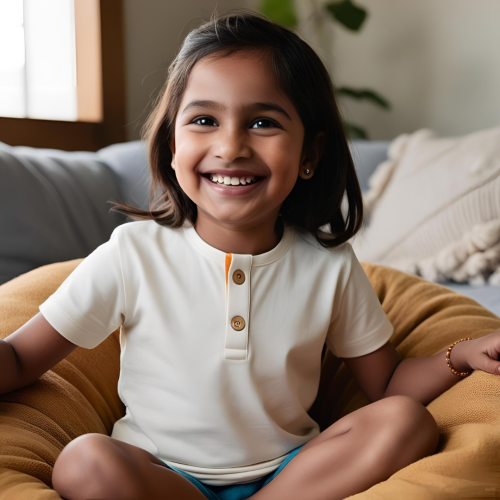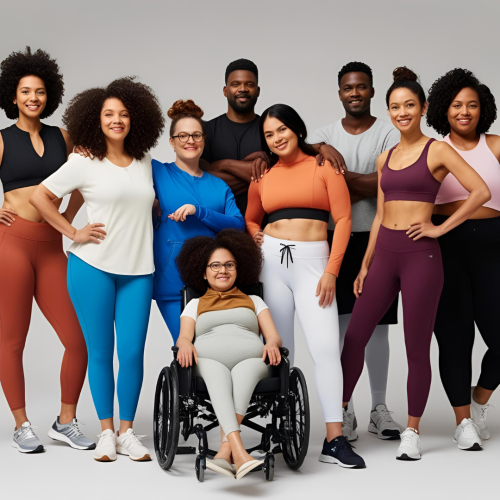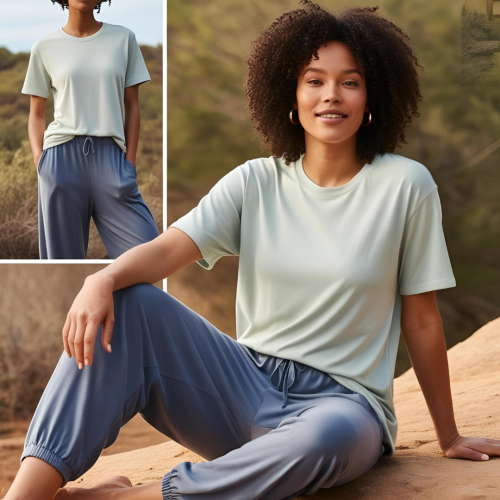Inclusive fashion goes beyond trends and comfort – it’s about giving a voice to those living with neurodivergent conditions such as autism, ADHD, and other sensory differences. There’s no better way to understand their preferences, challenges, and needs regarding clothing than by listening directly to those who experience it every day.
In this interview, we speak with three neurodivergent individuals about their personal experiences and how clothing can impact their well-being. Their stories serve as a powerful reminder that fashion should be accessible, comfortable, and, above all, empathetic.
Interview with Ana, 34, Diagnosed with Autism
How does clothing affect your well-being day-to-day?
Ana: “I feel that my choice of clothes can really affect my mood. If I’m wearing something uncomfortable, like seams or labels inside the garment, I get really agitated and it affects my focus. I have a higher sensitivity to textures, so when the clothes are uncomfortable, it feels like I can’t concentrate on anything else.”
What features do you look for in clothing that really help you feel comfortable?
Ana: “I avoid clothes with internal labels because they really bother me. I prefer soft fabrics like organic cotton and don’t like clothes that are too tight, like jeans or pieces with thick seams. Clothes with Velcro or magnetic zippers also help me a lot because I can dress more easily. For me, it’s about feeling like I can move freely without anything constricting me.”
Interview with Lucas, 27, Diagnosed with ADHD
How does ADHD influence your clothing choices?
Lucas: “I’m someone who changes moods quickly, so uncomfortable clothes can really affect my day. I often can’t focus on tasks because the discomfort from the clothes distracts me. I also notice that my ADHD makes me more impulsive, so I need clothes that are practical and quick to put on without much fuss. Clothes with buttons or complicated zippers are not for me!”
What do you consider important when choosing clothes?
Lucas: “Clothes with elastic bands and no thick seams are ideal for me. I look for pieces that don’t restrict me or require too much effort to wear. I prefer fabrics that are lightweight, breathable, and don’t make me sweaty, like bamboo or modal. If the garment has quick adjustments, like Velcro or magnetic buttons, even better! I like practicality because it helps reduce frustration.”
Interview with Sofia, 40, Diagnosed with Asperger Syndrome
What challenges do you face when choosing clothing?
Sofia: “I think one of the biggest challenges for me is finding clothes that feel ‘right’. I often experience sensory overload with synthetic fabrics, and even the seams can become uncomfortable to the point where I just want to take the clothes off. Also, my movement patterns are different, so often popular clothing doesn’t work for me.”
What are the essential qualities of clothing you look for?
Sofia: “The fabric quality is the most important. I avoid synthetic fabrics because they irritate me. I look for cotton, linen, or any other natural fabric that’s soft and doesn’t cause friction. Clothes need to be gentle and comfortable. I also prefer simpler styles with minimal embellishments. I don’t like things that restrict or make movement difficult.”
Final Thoughts: Listening to Neurodivergents is Crucial
The interviews with Ana, Lucas, and Sofia show that the clothing needs of neurodivergent individuals should not be seen as secondary or merely an aesthetic issue. For many people, discomfort with clothing can have a profound impact on their quality of life, affecting everything from productivity to emotional well-being.
Listening to and understanding these preferences is the first step towards evolving the fashion industry in an inclusive way. By giving a voice to those who live with these realities, we are creating a future where fashion respects, embraces, and promotes the autonomy of all.
These experiences also show us that inclusive fashion should be built with empathy, addressing the sensory and functional needs of each individual. Only then can we create a more equal and conscious environment where everyone feels comfortable and confident in what they wear.





